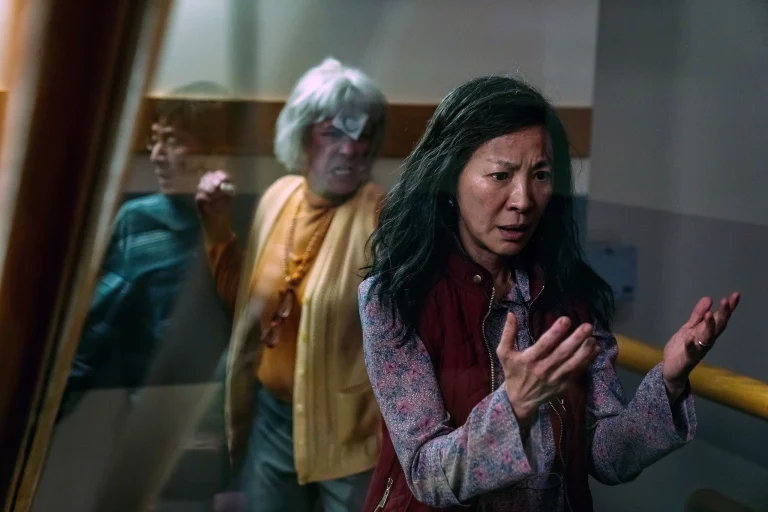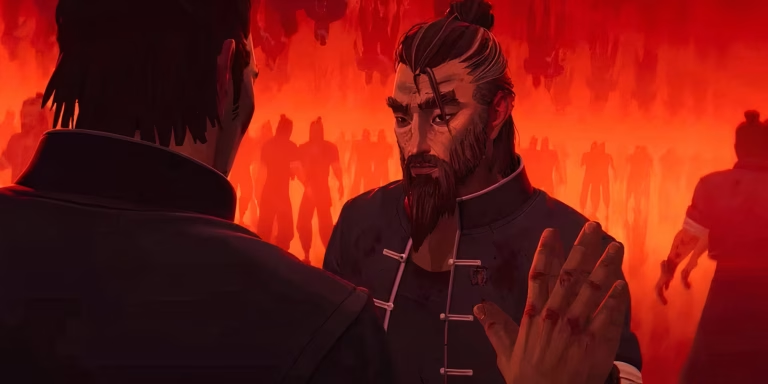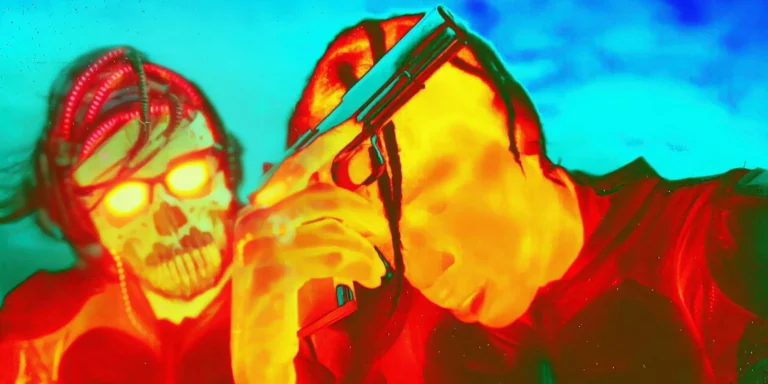This is the second iteration out of three iterations of “The Equalizer” franchise: the original 1980s television series, the movie trilogy starring Denzel Washington and directed by Antoine Fuqua, and a reboot of the television series starring Queen Latifah. In all of the instances, it followed a retired intelligence agent who used the skills they had learned throughout his career to extract vigilante justice on behalf of the innocent.
The most famous of all these iterations, inevitably, follows Denzel Washington as retired CIA intelligence agent Robert McCall. As the first film opens, he lives a quiet life in Boston and works at a hardware store. He befriends Teri, a teenage sex worker played by Chloe Grace Moretz. She is beaten by her pimp in front of Robert and taken in by the Russian Mafia. Offering to buy her freedom, McCall is refused and chooses to make quick work of them in brutal succession. When the pimp is revealed to be connected to the Russian mob, they send out hitmen after McCall. Of course, McCall has to fend them off with his own special set of skills.
Actors striving to look like badasses are nothing new. Liam Neeson has made a genre out of these mid-range action movies. But with The Equalizer, the predominant key attraction was Washington’s brand of charisma and magnetism, armed with him utilizing every tool in the book as a weapon in gruesome ways, with a stopwatch depicting the seconds required for the leader of the group of thugs to make a decision (usually 9 seconds). All of these made both the prior installments of “The Equalizer” primarily character pieces with short bursts of action and shades of realism present in a healthy canopy of pulp.
The Equalizer 3 (2023) Plot Summary & Movie Synopsis:
The movie opens at a secluded winery in Sicily, with the wine owner and his son entering the winery by driving in to find most of the guards being brutally murdered. As he walks in, passing the only surviving guard outside and asking his son to stay in the car, he walks into the basement to find Robert McCall held at gunpoint by two of his bodyguards.
We learn that McCall knows the winery is a front for the Sicilian mafia and that he is an enforcer for Roberto Vitale. With his typical nonchalance, McCall manages to kill the two bodyguards and the rest of the gangsters. Surprisingly, Fuqua doesn’t shoot that in the typical slow-motion of “The Equalizer” but cuts it normally, preferring a high amount of gore and violence.
McCall takes the key to the vault in the winery to recoup some stolen money, and as he walks out, he asks the son to stay in the car for his own safety. However, as he walks up to his car, Vitale’s son shoots McCall in the back. As he falls on the ground, compounded by the shock of both being shot as well as being shot by an adolescent and not being able to comprehend the possibility of such an event occurring, the scene transitions to McCall’s car on a ferry and then finally, the car is found at the corner of the hillside road near the Amalfi Coast by a carabiniere, Gio Banucci, as he is found unconscious due to shock.
While unconscious, Bunocci takes him to a small-town veterinarian named Enzo Arisio. As McCall slowly gains consciousness, he discovers that he is in the small town of Altamonte, which has been built and almost carved into the hills, with almost 700 steps working as streets connecting the town to the houses. McCall makes a slow recovery, having to use a cane and struggling to use and traverse the stairs. He becomes a regular at the local cafe, befriends a waitress named Aminah, and slowly becomes fond of the town and its people.
McCall also makes an anonymous call to the CIA desk to an officer named Emma Collins, seemingly randomly. He tips her off about the winery in Sicily and how it has been connected to the drug trade via the Middle East. Collins takes his tip and arrives with her superior and an army of CIA operatives. True to McCall’s word, the vault reveals cash to the tune of millions of dollars as well as bags of Captagon tablets, which is a strain of amphetamines.
Collins, too, follows through, tracing down the number from which McCall called and confirming his presence. McCall, however, remains unnerved by her presence, even choosing to pose in front of the camera. Later, when asked about his identity remains elusive, asking whether he looks like someone who can kill people. To which Collins replies she is inclined to believe in the affirmative.
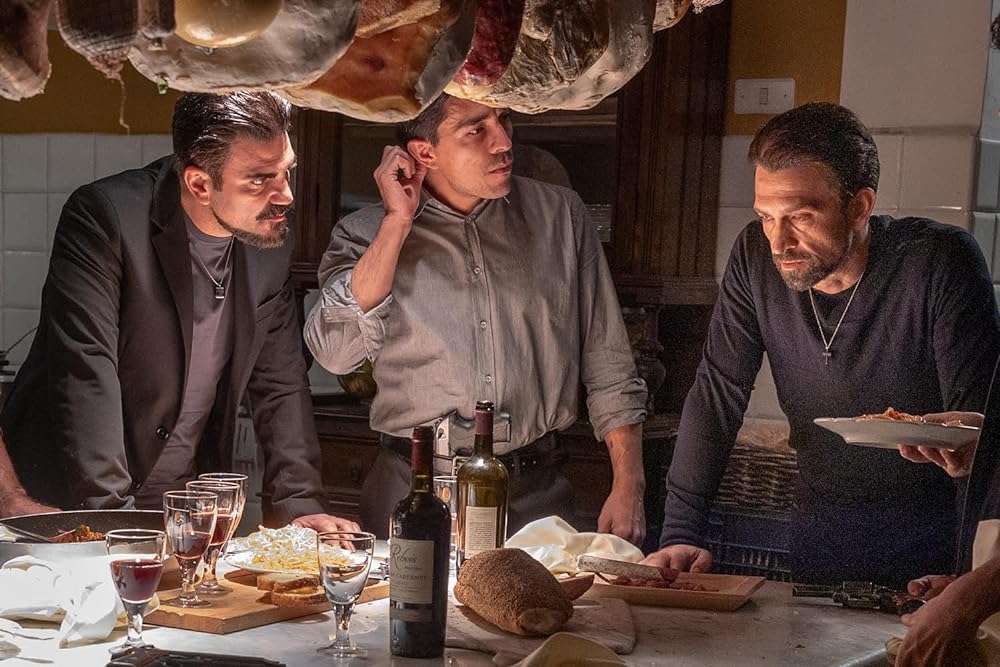
Meanwhile, the Italian Mafia, the Camorra, has plans for the beautiful hill-nestled town of Altamonte to gentrify the town and make casinos, according to the leader of the Camorra, Vincent. On the other hand, his brother Marco works as a low-level collector under the Camorra. Under his orders, he increases the pressure of earning the collection money from the local shops in Altamonte.
This catches the attention of McCall when he sees Marco threatening the local seafood store owner. When Angelo is unable to give in to the demands of the Camorra, Marco burns down the seafood store. When Gio Bonucci asks for information about CCTV footage regarding the van seen on the night of the firebombing, Marco attacks Bonucci in his home, threatening his family for questioning the Camorra and beating him up in front of his wife and children.
McCall has slowly been recovering, being able to get up the stairs, becoming more of a local, hatching and slowly deepening a friendship with Aminah, and exploring the local cuisine of Camorra. As a result, the Camorra interfering and bringing their influence into Altamonte is troubling him far more than he even expected. But it is causing him an existential crisis because, in his dreams, he could see how he was the cold, ruthless killing machine at the beginning of the movie from a point-of-view perspective.
Being in this town had been giving him the peace he had been rushing towards since the beginning of this trilogy. Thus, in the restaurant, when Marco and his goons threaten Gio to commission them a boat and threaten McCall to stop interfering in matters unrelated to him, McCall almost pleads with Marco to take his business elsewhere. Otherwise, things wouldn’t end well. When Marco doesn’t listen, McCall turns the pivot joint of his shoulder and presses his finger at the median nerve of Marco’s hand, eliciting a painful scream. Threatening to press it so hard that Marco would be forced to empty his bladder, he orders them to scram.
Marco’s ego is obviously hurt, and he plans to go back in with his henchmen and kill the stranger. But before they could go forward with their decision, McCall drove a van through the two henchmen of Marco. And when Marco threatens to kill McCall by brandishing a knife, McCall twists Marco’s hand and drives the knife through his neck, killing him.
Meanwhile, McCall has slowly become a mentor-like figure to Collins, and he instills the question in Collins’ head as to why Sicily, the most guarded port in the whole world, is the place for the illegal drug trade. Collins slowly realizes through the conversation with her boss that the Camorra is directly funding terrorism by paying for smuggling drugs into Sicily.
She chooses to investigate by requesting partnership and access with the head of the Naples police to question key members of the Camorra. But finds herself, almost obviously, being stonewalled for questioning. We later see this same Naples Chief of Police attending the funeral of Marco at Vincent’s mansion, where Vincent threatens the Chief of Police to take care of the CIA as well as find out his brother’s killer.
When the Chief of Police refuses, citing Vincent’s being complicit in the terrorist attack at the train station in Naples and calling attention to the CIA, Vincent cuts the hand of the Naples Chief of Police. He sends him to the hospital with his severed hand in an ice bucket. Collins is called about the Chief of Police’s situation and is later called by McCall, who warns her that the Camorra is involved in the drug cartel and closely linked with the terrorist attack.
That call inadvertently saves Collins’ life, as her car and the surrounding cars explode, having been fitted with a bomb to blow as soon as she would have been inside, ready to go. Finally, Vincent takes an army of Camorra henchmen. He threatens Bonucci in front of the center of Altamonte, almost blowing his ear off if the killer of his brother doesn’t reveal himself.
McCall finally reveals himself to Vincent, stating that he knows what his purpose is and that this town is exactly where he is supposed to be. He is ready to be taken away and tortured, but not in front of the townspeople, and Vincent should leave them alone. He puts his gun down. But before Vincent can kill him, he sees the citizens of Altamonte recording the confrontation, which forces Vincent to fall back with his army.
The Equalizer 3 (2023) Movie Ending, Explained:
I think the ending of The Equalizer (2023) is the final contemplative conclusion to an action movie one could expect, in which McCall acts as a slasher in a slasher horror movie. Unlike movies like “Friday the 13th”, the audience is squarely on the side of Robert McCall as he stealthily takes out every one of the guards in slow and methodical succession.
As the town celebrates the local festival, almost mirroring the end of The Godfather Part 1, just not as effectively, McCall is the avenging angel who is taking out the hydra that is the Camorra one by one. For Vincent, we see that he is not content to let the leader of the Camorra die as quickly as his bodyguards. Instead, he feeds the scared-out Vincent a lot of Captagon tablets and follows him as Vincent slowly tries to run away from his mansion and finally drops on the cobbled road of Naples, overdosed on his supply.
As Vincent’s death is reported as a drug overdose-induced suicide, McCall visits Collins on her hospital bed and gives her the money he had taken from the winery in Sicily. After recovering from her ordeal, Collins returns the money to an older couple whose pension fund had been hacked by an organization connected to this drug trade, which McCall essentially stumbled into.
At the CIA headquarters in Langley, Virginia, Collins gets promoted due to her work cracking open the connection between the Camorran drug trade and terrorism. He then finally opens the card that McCall had given him, revealing that he had written, “Your mother would have been proud of you.” It is then revealed that Collins is the daughter of McCall’s late handler, Susan Plummer, who had passed away in the prior installment. With the Camorra finally destroyed, McCall celebrates being part of the Altamonte community by joining their celebration of winning a football game.
Final Thoughts:
A snarky rebuttal to the near-invincibility and expertise of Robert McCall in “The Equalizer” could be that, within the timeline of the three movies, he had almost vanquished all forms of organized crime worldwide. If vigilante junction is the poison of the viewers’ choice, one could do worse than “The Equalizer” trilogy of movies.
As a director, Antoine Fuqua is prolific, but other than “Training Day,” the rest of his oeuvre could only be described as something akin to that of a journeyman. He is obsessed with establishing and evoking grit and realism, succeeding in “Training Day” but also parodying others. It is baffling because cinematographers of repute always accompany him. I think his partnership with Robert Richardson and the real-life location of Altamonte may give us one of the most gorgeous, colorful, and yet haunting installments of this franchise, possibly creating the best one of the three.
There is also an effort to take into account the effectiveness of the aging action star, and Fuqua, with screenwriter Richard Wenk, takes the clever route of injuring the protagonist and then, for over an hour, ensuring that McCall becomes familiar with the town such that his actions towards the end feel palpable. It is a gutsy move to have most of the second act be completely action-averse. However, “The Equalizer 3” pulls it off because of the tone it sets and the fact that Denzel Washington is such a consummate and charismatic performer that the movie can completely coast on his charm.
Moreover, the decision to ground the movie and make McCall’s actions and expertise in brutality akin to a slasher in a horror movie works very effectively. The final sequence feels horrifying in retrospect but also extremely cathartic as a result. “The Equalizer 3” is not in competition with movies like “John Wick” but becomes more of a throwback to the vigilante films or revenge-driven films of the 70s like “Death Wish” or “The Mechanic,” starring Charles Bronson. Thus, too, the film becomes like a character piece, with action sequences coming in shorter bursts.

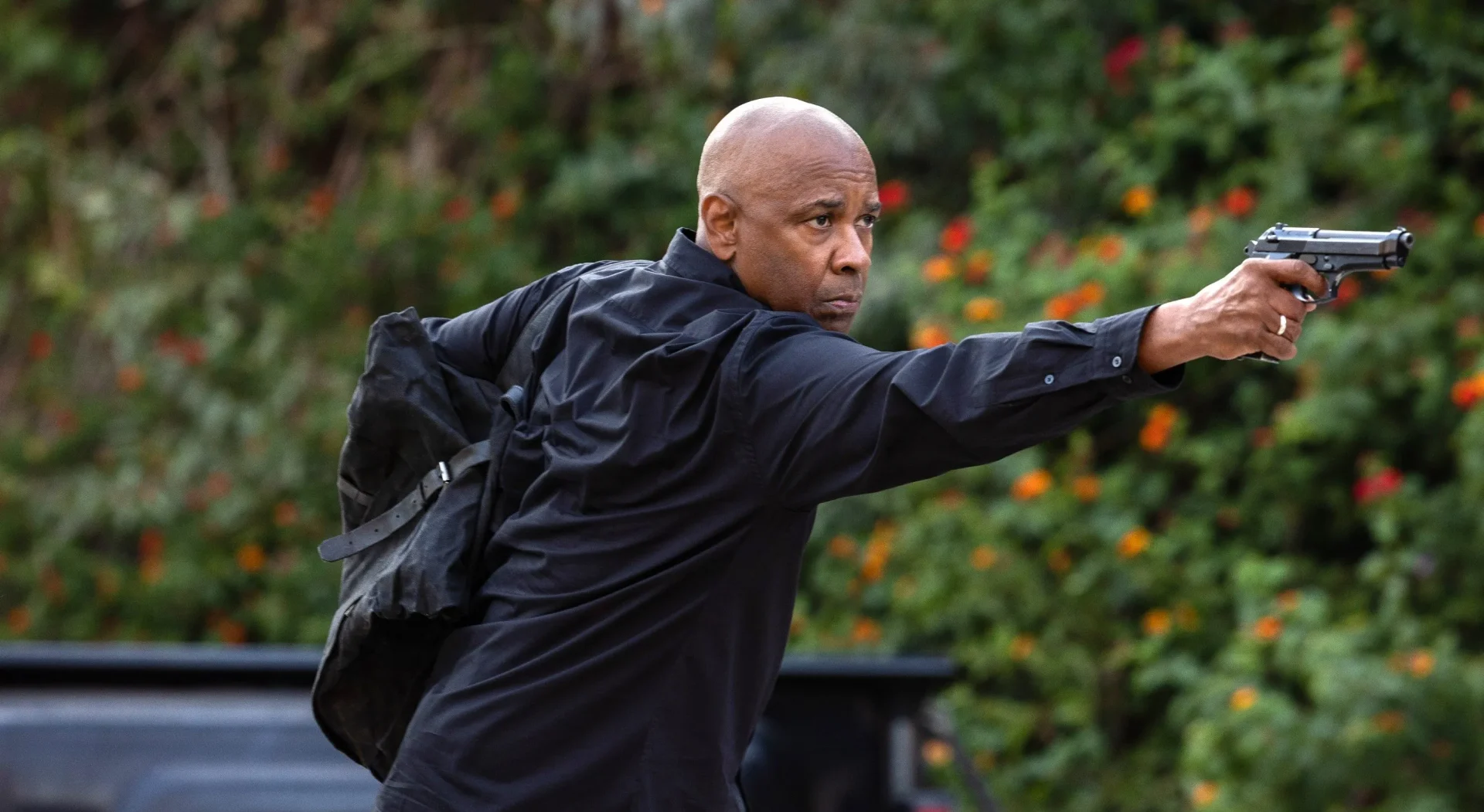



![Pachamama Netflix [2019] Review – A Spirited Tale of an Adventurous boy](https://79468c92.delivery.rocketcdn.me/wp-content/uploads/2019/06/pachamama_netflix-768x432.jpg)
